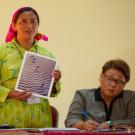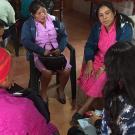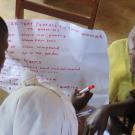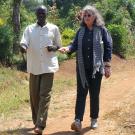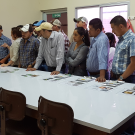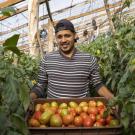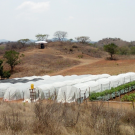In the Western Highlands of Honduras, families struggle to survive on subsistence agriculture. Poverty and malnutrition rates are high, and take a particularly heavy toll on women and children. There are limited prospects for increasing production of traditional crops in the region, as well as few off-farm employment opportunities. High-value horticulture, however, can generate income on limited landholdings, and offers a promising way for women and their families to escape from poverty.
A team of researchers, led by Janelle Larson of Penn State, is analyzing the horticultural value chain in Western Honduras using a gendered economy perspective — one that is attuned to normative, cultural, economic and political forces that shape gender inequalities in access to and control over resources. This analysis documents how the horticultural value chain can be a mechanism to support equity and empowerment for women and other marginalized groups.
In order to promote women’s equity and empowerment through horticulture, the research team identifies technologies, institutions, and policies that support smallholder horticultural production, improve nutrition, and enable entrepreneurs and wage laborers to participate in the horticultural value chain. They also analyze the cultural, political, and regulatory barriers that limit women’s full participation in the horticultural value chain.
With this information, the team of researchers works with Honduran NGOs, microfinance institutions, and women’s organizations to design and deliver trainings, technologies, and tools to help promote women’s empowerment and successful participation in the horticultural value chain. These tools and trainings are shared with other NGOs, private enterprise, and research institutes in order to maximize their impact.
Additional project website: Women in Agriculture Network (WAgN): Honduras project

